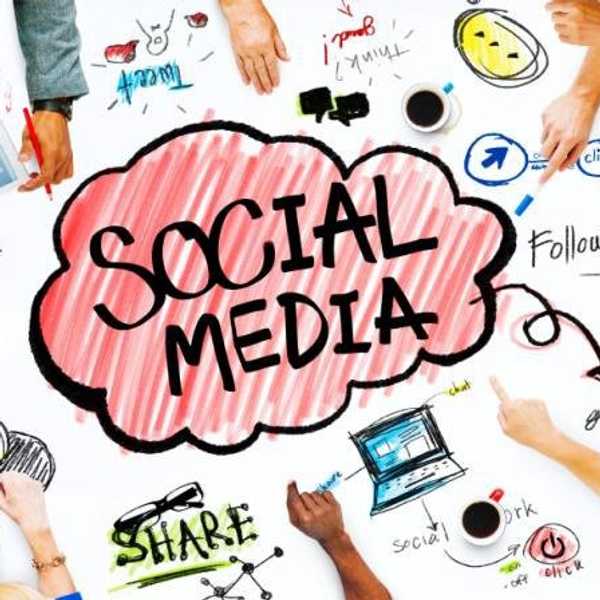**I must begin by stating that I absolutely use social media and understand the entertainment value and convenience of social media platforms.
In a society where everyone is constantly digitally conversing, sharing, gaming, and watching, it's deemed hypocritical for a millennial to say he/she would rather live a social media-free life. At some point or another we've all thought about how much better life might be if we weren't wasting our time watching Snapchat stories, aimlessly liking Instagram posts, or furiously refreshing Facebook when procrastinating doing schoolwork.
You might be reading this and thinking, so why not delete your social media accounts? Unfortunately, it's not that easy. Social media is no longer a choice. It's scary to think that the world we live in basically forces us to be connected to social platforms at all times. Young adults roughly 17-28, feel this pressure to stay connected more so than any other age group, and there's a few key reasons why.
First of all, we can't discount the innate desire to fit in. As much as we all hate to admit it, the reason for involving ourselves with these social platforms in the first place was due to a combination of interest and social pressure. It's normal to want to appear well-connected and sociable. Removing ones self from social media means losing the ability to contribute to conversations regarding certain things happening on these platforms. Fitting in is definitely a driving force behind why we use social media, but in my opinion it's not necessarily the most important one.
Secondly, there's the academic pressure. I would absolutely argue that deleting my social media accounts would affect my academic life. Students are constantly messaging classmates on Facebook for homework questions, plans for group projects, etc. I use Facebook because I often don't have the phone number for members of my group. Some professors have even created Facebook pages for class. These pages provide assignment updates, announcements, and even links to readings. Not to mention all of the groups students are a part of on Facebook. There's class groups, Greek life groups, club groups, groups with high school friends, etc. Not being a part of these Facebook groups or GroupMe's might mean missing opportunities to socialize, or missing important announcements regarding meetings and events that are important to a student's life.
Lastly, the most prominent factor forcing us to keep up with social media comes from the professional world. As a communication major, I am not only expected to keep up with my personal social media accounts, but I am also encouraged to create professional accounts as well. I must explore new social media platforms constantly, and keep up with social trends. This is true for nearly all professionals; most companies spend time choosing new hires that are familiar with social media platforms and will help build company online presence. Young professionals are often the one's managing social media accounts for the companies they work for, and you can bet that almost every relevant company has a presence on social media. In today's world, even failing to have/keep up with a LinkedIn account as a college student may put a student at an extreme disadvantage when it comes to securing a job.
Social media used to be fun, a form of entertainment, a way to stay in touch with friends. This, perhaps, is how it still appears to older age groups. It has, however, now become a source of stress for many young adults. It's one more thing to keep up with. What's even worse is the fact that these platforms are abused by young people. They lead the way for cyber bullying and create an environment fueled by vainness and self obsession. These platforms will not be dispensable until the majority of young people decide they are dispensable.
Removing ones self from social media means more than just missing out on the chance to interact with friends on Facebook, or share a photo from the vacation you took during fall break. It means potentially ruining one's shot at a job, missing out on academic opportunities, and losing social confidence.





















